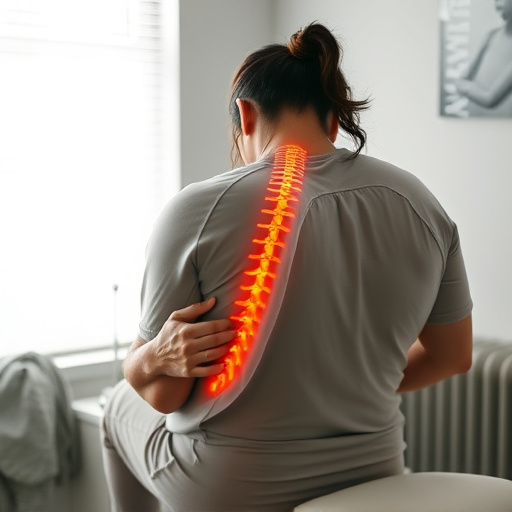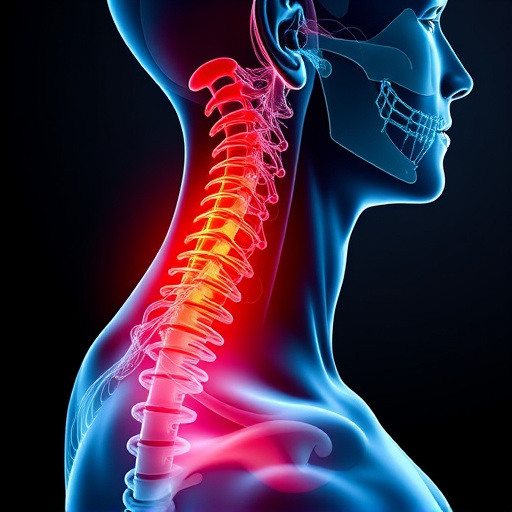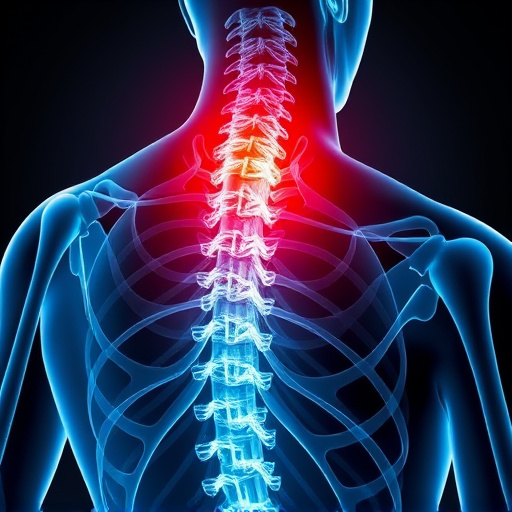Chronic pain management requires addressing both physical symptoms and psychological causes, as mental health significantly impacts adherence to treatment plans. Integrating cognitive-behavioral therapy (CBT) and other psychological support techniques can reduce stress, anxiety, and depression, lower inflammation, and improve outcomes by challenging negative thoughts and reducing perceived suffering. This holistic approach, including traditional treatments and mental health support, enhances chronic pain management effectiveness and improves quality of life.
Chronic pain is a complex condition, and understanding its multifaceted nature is crucial for effective management. This article explores how mental health significantly influences the success of chronic pain management strategies. We delve into the mind-body connection, examining the impact of psychological factors on treatment adherence. Additionally, it offers valuable insights into enhancing pain management through integrated psychological support, providing a holistic approach to help individuals navigate their journey towards relief and improved quality of life.
- Understanding the Mind-Body Connection in Chronic Pain
- The Impact of Mental Health on Treatment Adherence
- Strategies to Enhance Pain Management with Psychological Support
Understanding the Mind-Body Connection in Chronic Pain

Chronic pain is a complex condition that often involves a deep interplay between the mind and body. Understanding this mind-body connection is crucial for successful chronic pain management. When someone experiences prolonged or persistent pain, such as that associated with personal injury or joint pain relief, their mental state can significantly impact how they perceive and cope with the sensation. Emotional factors like stress, anxiety, and depression can intensify pain signals sent to the brain, making it harder to achieve effective pain management.
This connection is further underscored by research into conditions like pinched nerve relief, where psychological interventions have shown promise alongside traditional treatments. Chiropractic care, for instance, often incorporates mental health support to address the holistic nature of chronic pain. By acknowledging and addressing both physical symptoms and their underlying psychological causes, healthcare providers can enhance the effectiveness of chronic pain management strategies.
The Impact of Mental Health on Treatment Adherence

The mind-body connection plays a significant role in managing chronic pain conditions. Mental health significantly impacts an individual’s ability to adhere to treatment plans for chronic pain relief. Depression, anxiety, and stress can lead to non-compliance with prescribed medications, therapy sessions, or even recommended lifestyle changes, such as exercise routines crucial for sports injury recovery.
These psychological factors can cause individuals to perceive pain differently, affecting their motivation to engage in self-care activities. For instance, someone struggling with depression might find it challenging to initiate and maintain a consistent exercise program, which is vital for managing chronic pain conditions effectively. Understanding this interplay between mental health and treatment adherence is essential in developing holistic approaches to chronic pain management, ensuring better outcomes and improved quality of life.
Strategies to Enhance Pain Management with Psychological Support

Integrating psychological support into chronic pain management plans can significantly enhance treatment outcomes. This holistic approach recognizes that mental health and physical well-being are intricately linked. Techniques such as cognitive-behavioral therapy (CBT) help individuals challenge negative thought patterns associated with their pain, fostering a more positive mindset that can reduce perceived suffering. By learning coping mechanisms, patients gain tools to better manage stress and anxiety, which often exacerbate chronic pain symptoms.
Furthermore, psychological support can complement traditional treatments like spinal adjustments or post-injury care. Therapists might teach relaxation techniques or mindfulness practices to help individuals achieve a state of calm, reducing the body’s inflammatory response and potentially offering additional back pain relief. This multi-faceted approach ensures that patients receive comprehensive care tailored to their unique needs, ultimately improving their chances for successful chronic pain management.
Chronic pain management is a multifaceted approach that recognizes the profound impact of mental health. Understanding the mind-body connection and addressing psychological aspects alongside physical treatment can significantly enhance success rates. By integrating psychological support, individuals with chronic pain can improve their adherence to treatments, develop coping mechanisms, and ultimately achieve better overall outcomes. This holistic view of chronic pain management ensures a more comprehensive and effective strategy for those living with persistent pain.














